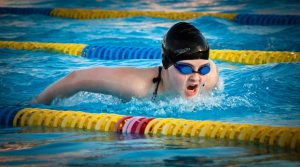10 Nov How Can I Help My Child Get Better? A Success Story
 Early in 2016, a 15-year-old girl and her parents scheduled an appointment in Dr. Dave’s office. The girl was a competitive swimmer with a one-year history of abdominal pain that had been worsening over the past two months. The pain occurred several times a week and was located around the belly button, and it felt like pressure and cramps and was also associated with headaches. However, when tested, the patient’s blood work, abdominal ultrasound, upper endoscopy, and lower endoscopy were all normal.
Early in 2016, a 15-year-old girl and her parents scheduled an appointment in Dr. Dave’s office. The girl was a competitive swimmer with a one-year history of abdominal pain that had been worsening over the past two months. The pain occurred several times a week and was located around the belly button, and it felt like pressure and cramps and was also associated with headaches. However, when tested, the patient’s blood work, abdominal ultrasound, upper endoscopy, and lower endoscopy were all normal.
The Father of Modern Medicine, Sir William Osler, said, "Listen to your patient, he is telling you the diagnosis." In other words, the key to helping the child lies in the history taking. The history taking in this case revealed that the patient’s pain always occurred after her intense swim practices and swim meets. The pain also occurred within one to two hours of eating lunch.
The Diagnosis and Plan
Functional abdominal pain and the brain-gut interaction were discussed in detail with the patient and her parents.
It was determined that anxiety related to her competitive swimming was causing her abdominal pain. A plan was formulated for the patient to receive neurofeedback to help her abdominal pain.
It was also determined that the Uncrustables Chocolate Hazelnut Sandwiches she ate several times a week for lunch were the cause of her post-lunchtime pain. The consuming of these sandwiches was stopped.
Interventions
The patient and family met with Dee O’Neill to do the following interventions.
-
NeuroCogntive Assessement
- QEEG “brainmap” to determine areas of brainwave over-activation or under-activation
- Online computerized cognitive assessment to determine performance in thinking
- Questionnaires on history, mood, and sleep
-
NeuroCognitive Training
- Twenty-five sessions of neurofeedback conducted three to four times per week over seven weeks
Outcome
The patient and family were committed to the plan knowing that there was not a quick fix but that instead change would happen slowly over time.
After following the plan, the mother of the teenage girl reported:
“I was skeptical of the Neurofit program. However, we were desperate to help my daughter through sports performance anxiety, stress, headaches, abdominal pain, and ADD. We did the program over the summer. I refused to attribute any success until we were farther into the school year. We have just completed the first nine weeks with all As and a B in Chemistry. I am no longer hounding her to be organized, and her performance in swim meets has shown improvement, even earning her sectional times. Just last weekend, my daughter said, "Mom, I really think those treatments worked. I don't feel as anxious!" While we are continuing her medication, by her choice, this program has augmented her current treatment. No longer are we discussing increasing the dose, but rather, going down a level. I am a true believer.”
If you would like more information about gastrointestinal (GI) digestive disorders and nutrition in children, please contact Dr. Mona Dave’s Frisco Office or Request Appointment Here.